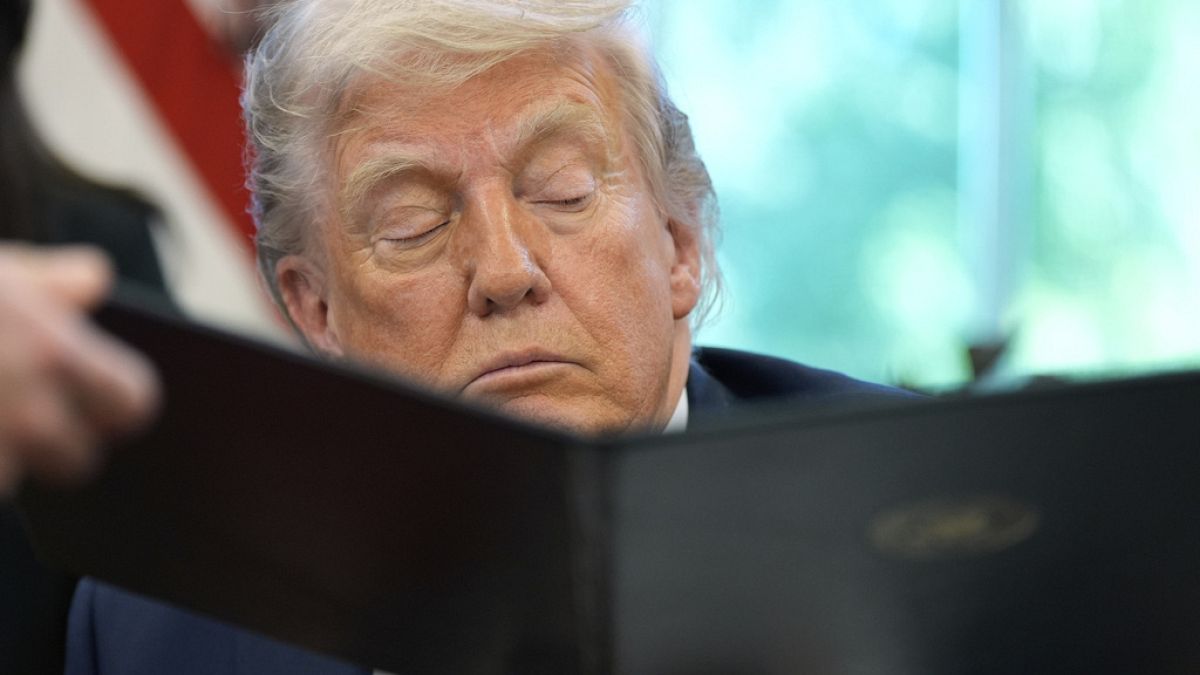Although expected, Trump’s executive order on “unleashing” America’s offshore critical minerals and resources means the US is poised to extend the global scramble for critical minerals like lithium and rare earth metals to the high seas, while the majority of countries are still negotiating rules on how to ensure mining is done safely and without potentially massive environmental destruction.
“The United States faces unprecedented economic and national security challenges in securing reliable supplies of critical minerals independent of foreign adversary control,” runs the preamble to the president’s 139th executive order since taking office in January. China is specifically named later in the document.
The order, published on Thursday, requires government officials to assess “private sector interest and opportunities for seabed mineral resource exploration, mining, and environmental monitoring in the United States Outer Continental Shelf; in areas beyond national jurisdiction; and in areas within the national jurisdictions of certain other nations that express interest in partnering with United States companies on seabed mineral development”.
The scale of Trump’s ambition goes well beyond that of Norway, which last year announced its own plans – now shelved after a backlash by environmentalists – to open up swathes of its Arctic territorial waters to exploration by mining firms.
On the day the US president signed the executive order, Norwegian Prime Minister Jonas Gahr Støre – who has said a last-minute parliamentary block on his government’s seabed mining ambitions was merely a postponement – was in Washington for two-way talks with on Ukraine and trade.
Fast-track for exploration
Trump has instructed US Secretary of Commerce Howard Lutnick to “expedite the process for reviewing and issuing seabed mineral exploration licences and commercial recovery permits in areas beyond national jurisdiction under the Deep Seabed Hard Mineral Resources Act”.
This, as Euronews reported earlier this week, would mean the US using a little-known domestic legislation dating from the 1980s to sidestep ongoing talks within the UN’s International Seabed Authority (ISA), which has agreed a moratorium pending the completion of ongoing negotiations on the Mining Code setting out safety and environmental protection standards.
“This is a clear case of putting mining companies’ greed over common sense,” said Katie Matthews, chief scientist and senior vice-president at the global campaign group Oceana. “Any attempt to accelerate deep-sea mining without proper safeguards will only speed up the destruction of our oceans.”
This was echoed by the Washington-based group Ocean Conservancy, whose vice-president Jeff Watters noted that areas of the US seafloor subject to test mining 50 years ago have yet to fully recover. Moreover, the move by the Trump administration could trigger a destructive rush to secure minerals that have been dubbed the new oil. “By unilaterally pursuing mining in international waters in defiance of the rest of the world, the Administration is opening a door for other countries to do the same,” he said.
The executive order follows a warning from ISA secretary-general Leticia Carvalho last month that “any unilateral action would constitute a violation of international law”. However the US is not among the 169 countries plus the EU who have ratified the overarching United Nations Convention on the Law of the Sea.
The move by Washington came the same day that the European Commission tabled a proposal to incorporate into EU law the more recent Biodiversity Beyond National Jurisdiction’ Agreement (BBNJ), also know as the High Seas Treaty, which seeks to establish huge marine protected areas (MPAs) in the high seas in line with the 2022 Kunming-Montreal Agreement biodiversity.

